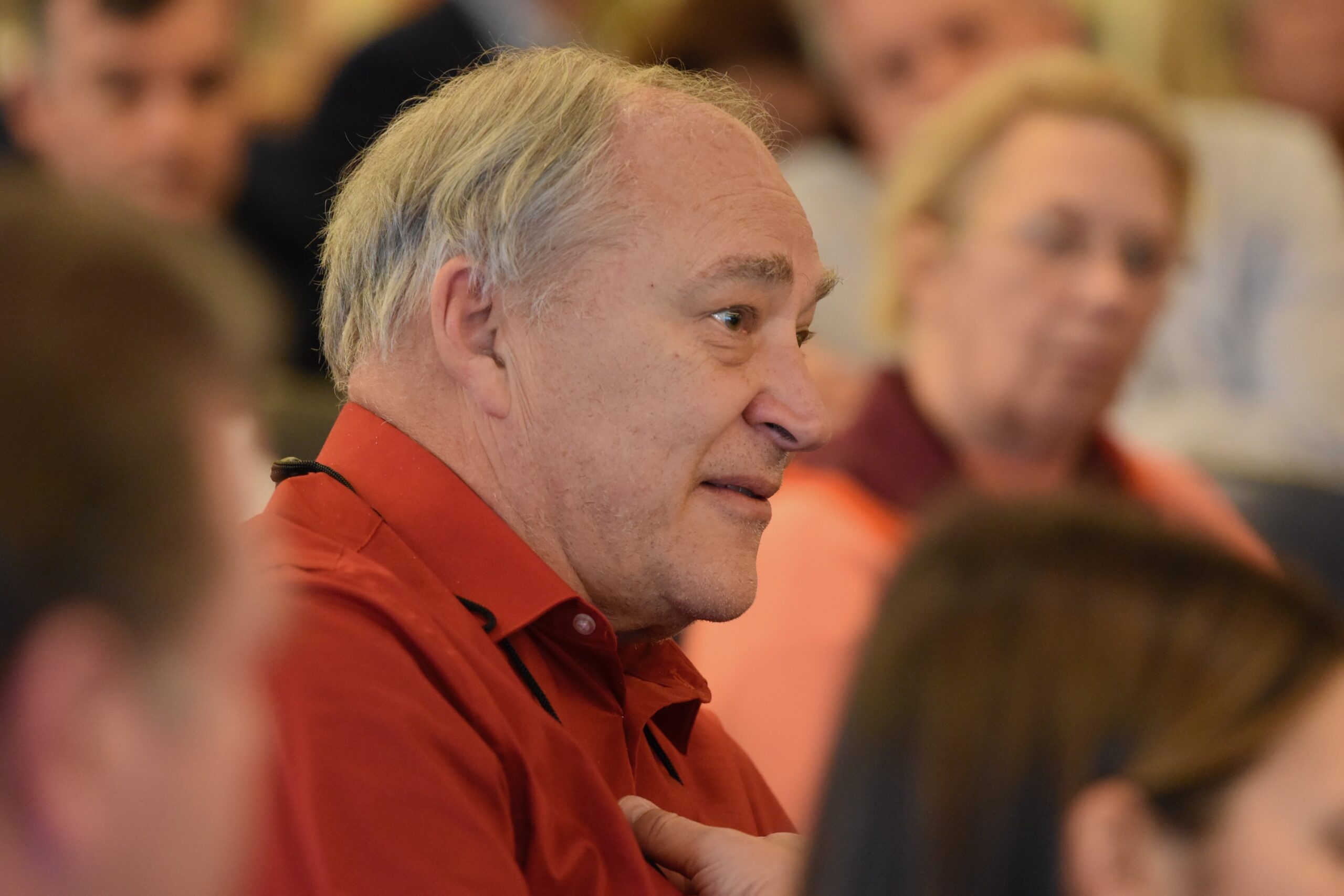
A day after a public announcement to cut more than $3 billion in transportation projects, county officials are pushing for answers and a way to avert the gutting of local road and transit priorities.
Leaders from the state’s 24 major political subdivisions arrived in Cambridge for the annual Maryland Association of Counties winter conference with more questions than answers and a growing sense of frustration.
“I think we’re all sharing the same concerns, and the hope now is that we can forge a consensus about what those solutions are,” said Baltimore County Executive Johnny Olszewski (D), the incoming president of the Maryland Association of Counties. “Again, whether it’s the state stepping forward or giving local governments more flexibility to solve some of these challenges or some mix of them.”
The latest budget bad news adds one more level of angst for counties who will hear about a structural budget deficit that is expected to grow in coming years as well as increased costs to them to pay for the latest version of a generational revamping of public education.
“We’re all feeling the pinch,” said Olszewski. “It shouldn’t be lost that this is a critically important conversation, but the pinch here that that locals would feel will only be exacerbated by the fact that we’re also being asked to do more on education funding, investing in our workforce, making other capital investments all which is becoming more and more difficult to do.”
All of that as Gov. Wes Moore (D) is expected to speak to the conference Thursday night.
Details of the cuts released publicly flummoxed county leaders. They are now scrambling to understand the exact effects on each of their budgets and searching for ways to stave off the most serious cuts.
Some are looking at “revenue enhancements” to pay for the projects.
Anne Arundel County Executive Steuart Pittman (D) called for tax increases including a reinstatement of the so-called millionaires tax and other measures to soften the blow.
Montgomery County Executive Marc Elrich (D) said the current tax structure in Maryland handcuffs counties and prevents them from establishing dedicated taxes to fund local transportation initiatives.
“I’m a big believer in liberating the counties to raise revenue,” Elrich said. “The state can’t both say we’re pulling back and then keep its foot on the necks of all the counties and say you can’t raise revenues.”
Elrich said he would favor allowing counties to establish taxing districts where additional taxes would be dedicated to local transportation needs like what is done in Virginia.
“This is where we lacked the authority that other jurisdictions counties have,” Elrich said. “And for me, it’s painful because it’s right across the frickin’ river.”
Some others have quietly floated the idea of a local add-on to the state sales tax. It is the same idea that has been floated to help pay for increased state education funding mandated by the state.
State Transportation Secretary Paul Wiedefeld, in an interview Tuesday, said the department is forced to address $3.3 billion in shortfalls.
Wiedefeld did not attend the opening day of the conference which featured a panel discussion with transportation officials. Organizers braced for a contentious session expecting attendees to fire off questions at state officials.
Instead, many who attended said they withheld more direct questions out of fairness to representatives of the transportation department who were not equipped to discuss their concerns. Instead, some questioned Wiedefeld’s absence.
To close the gap, the Maryland Department of Transportation will cut $1 billion from its operating budget. Another $2 billion will be cut from its capital budget. Local governments will see a $400 million reduction.
The reductions hit some of the most desired projects in every county.
“This was intentional,” Sen. Stephen S. Hershey Jr. (R-Upper Shore) said of the timing of the announcement. “They made cuts to the issues that are most important to the most amount of people. This was purposely done.”
Hershey said he believes the goal is to put pressure on the General Assembly to raise taxes while protecting the governor, who expressed a reluctance to tax increases during his campaign and as he entered office.
The announcement also comes as the blue-ribbon Transportation Revenue and Infrastructure Needs Commission — called the TRAIN Commission — is expected to finalize an interim report to the legislature.
The panel was tasked with finding ways to modernize both how the state picks and prioritizes road and transit projects to fund and a Transportation Trust Fund that is heavily reliant on gas taxes and new vehicle taxes.
Both those forms of revenue have declined in recent years as motorists buy less fuel, keep their cars longer and move to electric and hybrid vehicles that do not pay gas taxes.
Those initial recommendations are expected to include fees for electric vehicles and toll increases on out-of-state drivers. None of those are expected to fully solve the issue and the commission will continue its work for another year.
Hershey said any attempt to force revenue increases this year “jumps” the TRAIN Commission’s work.




 Creative Commons Attribution
Creative Commons Attribution